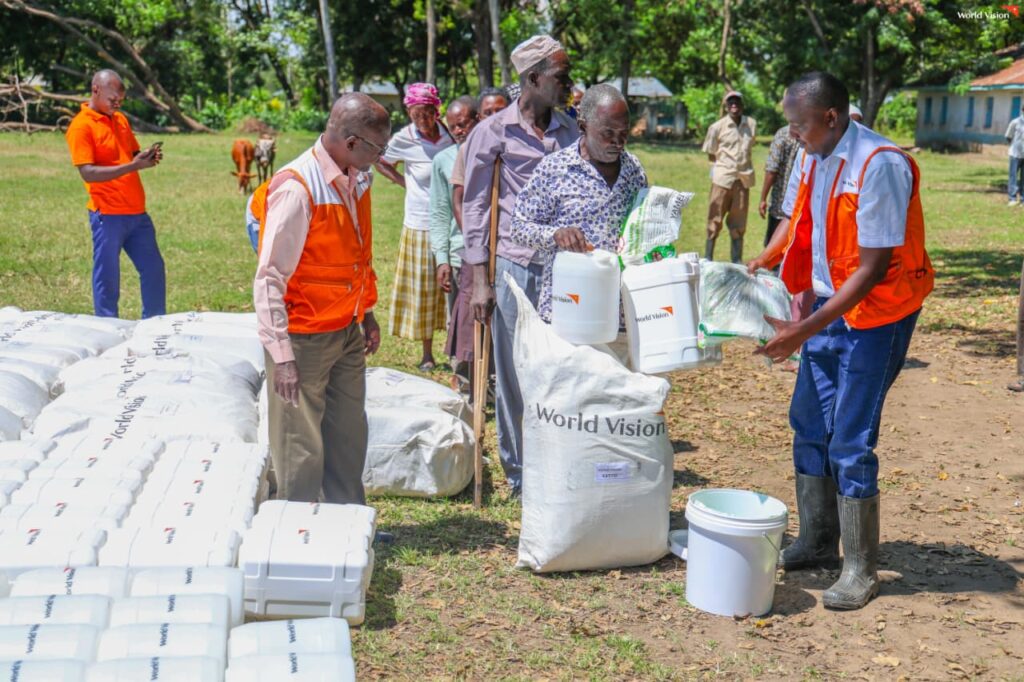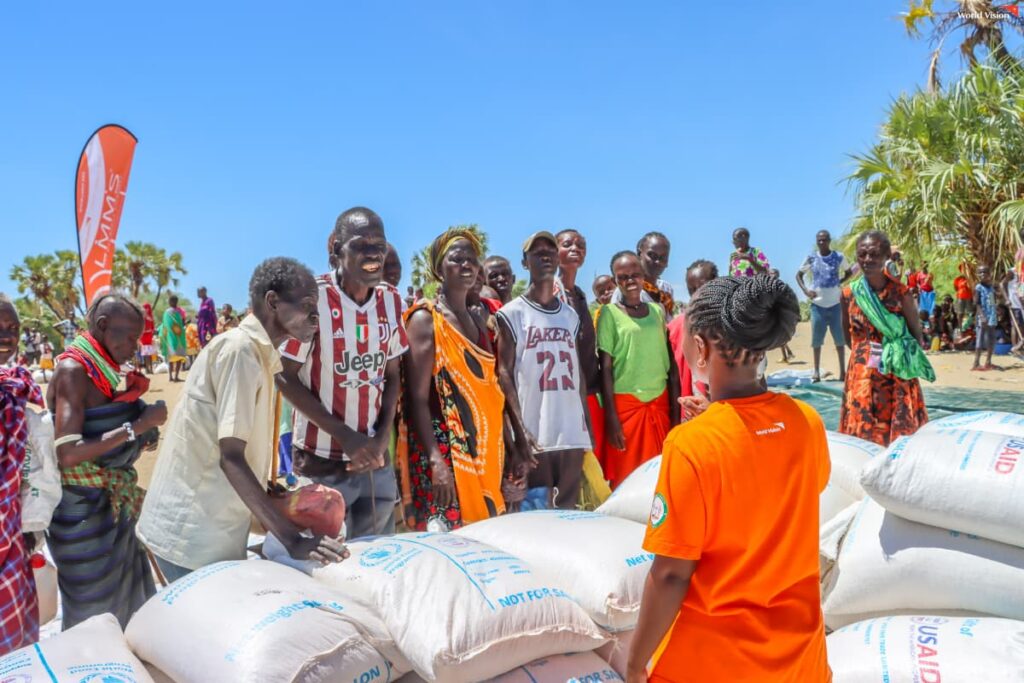By Melisa Mong’ina
World Vision Kenya (WVK) joined the global community on Tuesday, 19th August, to commemorate World Humanitarian Day, celebrating frontline aid workers and recognizing the resilience of communities most affected by crises.
Globally, humanitarian needs continue to rise, with over 120 million people displaced by conflict, disaster, and violence.

According to the World Food Programme, about 828 million people face hunger, while an additional 250 million are at risk due to climate shocks and war.
Kenya faces similar challenges. The country currently hosts 843,165 refugees and asylum seekers, mostly from South Sudan, Somalia, and the Democratic Republic of Congo, in camps such as Kakuma and Kalobeyei.
Due to prolonged drought, 4.5 million people have been left food insecure and 1.5 million children faces the risk of malnutrition. Limited access to healthcare and education further contributes to the crisis.
Despite these worrying statistics, WVK has stepped up its response. In 2024 alone, the organisation reached 4.2 million people, including 2.24 million children, across 37 counties. Interventions ranged from emergency food and health services to long-term programs in education, livelihoods, and climate resilience.

Key highlights of WVK’s work include:
- Supporting 2.24 million children and 1.96 million adults through health, nutrition, and education programs.
- Enrolling 119,853 children in sponsorship programs to ensure education, healthcare, and protection.
- Providing 44,000 refugees and host community members with climate-smart farming and psychosocial support.
- Delivering emergency food aid to 160,000 refugees in partnership with the World Food Programme.
- Rehabilitating over 3,000 boreholes and water points, improving access to safe water and reducing disease outbreaks.
Speaking during the commemoration, Gilbert Kamanga, WVK’s National Director, emphasized the need to prioritize local solutions in humanitarian response.
“Global solidarity is essential in times of crisis, but local communities must be at the forefront of the response. Their knowledge, resilience, and leadership are critical in shaping sustainable solutions. On this World Humanitarian Day, we honour the frontline workers who risk their lives every day to bring hope and relief to those who need it most,” he said.
WVK also issued a call to action, urging governments, partners, and the international community to increase investment in community-led responses, support long-term resilience programs, and strengthen partnerships to ensure vulnerable populations are not left behind.
